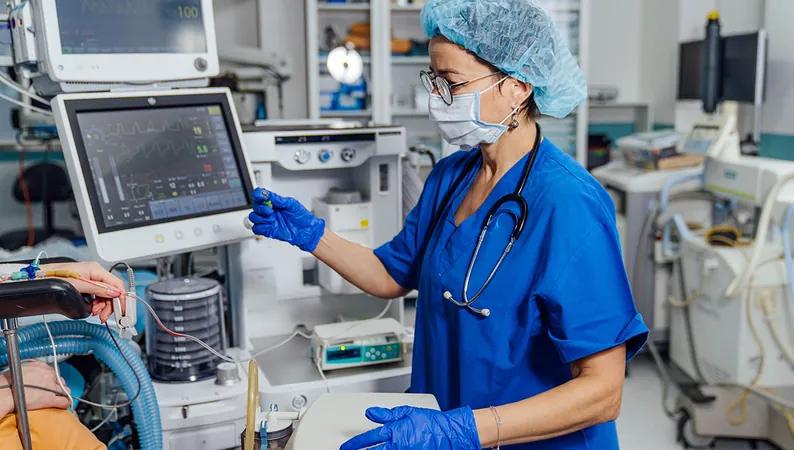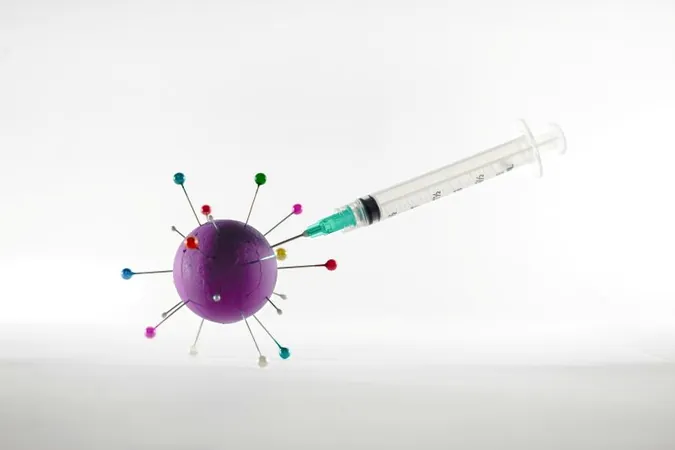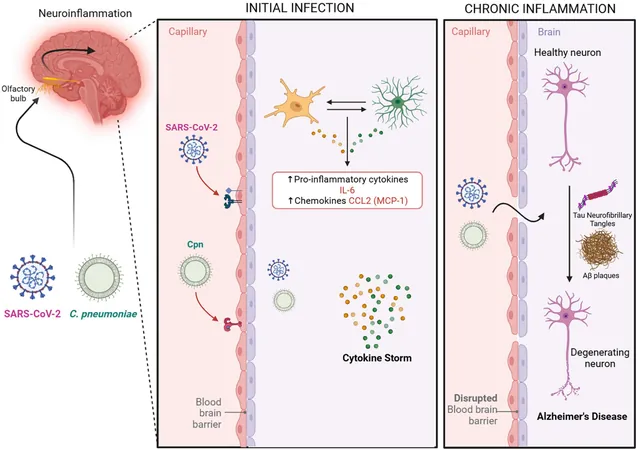
Revolutionizing Cardiac Recovery: AI-Powered Glucose Control Takes Center Stage
2025-06-10
Author: Li
AI Steps Up in the ICU
A groundbreaking artificial intelligence algorithm is making waves in the ICU, aiming to revolutionize how glucose levels are managed in patients recovering from cardiac surgery. This innovative tool, known as GLUCOSE, is designed to streamline insulin adjustments by closely tracking glucose fluctuations, ultimately reducing the risk of severe complications that can arise during recovery.
Why Glucose Control Matters Post-Surgery
Following cardiac surgery, patients face a critical period where their health can rapidly decline due to uncontrolled glucose levels. Hyperglycemia can lead to a host of serious issues such as infections, kidney damage, arrhythmias, and even increased mortality rates. Yet, current protocols manage to keep only 15% of patients within the optimal glucose range within the first day after surgery. This statistic highlights an urgent need for a more personalized approach to glucose management.
The Dynamic ICU Environment
The postoperative phase is particularly volatile, with a patient’s condition changing dramatically—from hour to hour, or even minute to minute. Senior investigator Ankit Sakhuja emphasized the difficulties healthcare professionals face during this dynamic period, stating, "It becomes very challenging to keep up with the rapid changes while ensuring glucose levels remain controlled." Unlike traditional protocols that often overlook individual variability, GLUCOSE focuses on providing tailored recommendations based on each patient’s unique needs.
From Prediction to Action
This shift towards 'actionable AI' marks a significant leap in the field of medical technology. The GLUCOSE model leverages data from over 6,000 ICU patients who have undergone cardiac surgery, validating its approach with nearly 1,000 additional patients. Researchers found that GLUCOSE’s insulin recommendations aligned with clinician decisions nearly a third of the time—showing promise in helping patients maintain glucose levels within the ideal range of 70-180 mg/dL.
Remarkable Results and Future Prospects
The results indicate that those patients whose insulin doses matched the algorithm’s suggestions had a significantly greater proportion of time in the desired glucose range. Furthermore, preliminary studies comparing GLUCOSE’s performance to experienced clinicians revealed that it performs on par—and sometimes surpasses—senior medical professionals in accuracy and safety.
A Game Changer in Cardiac Care
As research and validation continue, the GLUCOSE algorithm stands poised to transform the landscape of cardiac recovery, improving patient outcomes while potentially lowering healthcare costs. With the promise of personalized care and more accurate glucose control, this AI innovation is set to empower both patients and medical professionals alike.


 Brasil (PT)
Brasil (PT)
 Canada (EN)
Canada (EN)
 Chile (ES)
Chile (ES)
 Česko (CS)
Česko (CS)
 대한민국 (KO)
대한민국 (KO)
 España (ES)
España (ES)
 France (FR)
France (FR)
 Hong Kong (EN)
Hong Kong (EN)
 Italia (IT)
Italia (IT)
 日本 (JA)
日本 (JA)
 Magyarország (HU)
Magyarország (HU)
 Norge (NO)
Norge (NO)
 Polska (PL)
Polska (PL)
 Schweiz (DE)
Schweiz (DE)
 Singapore (EN)
Singapore (EN)
 Sverige (SV)
Sverige (SV)
 Suomi (FI)
Suomi (FI)
 Türkiye (TR)
Türkiye (TR)
 الإمارات العربية المتحدة (AR)
الإمارات العربية المتحدة (AR)